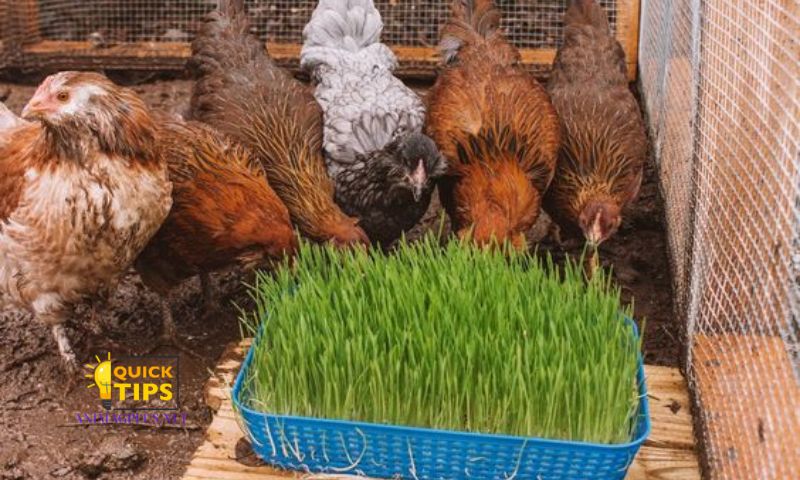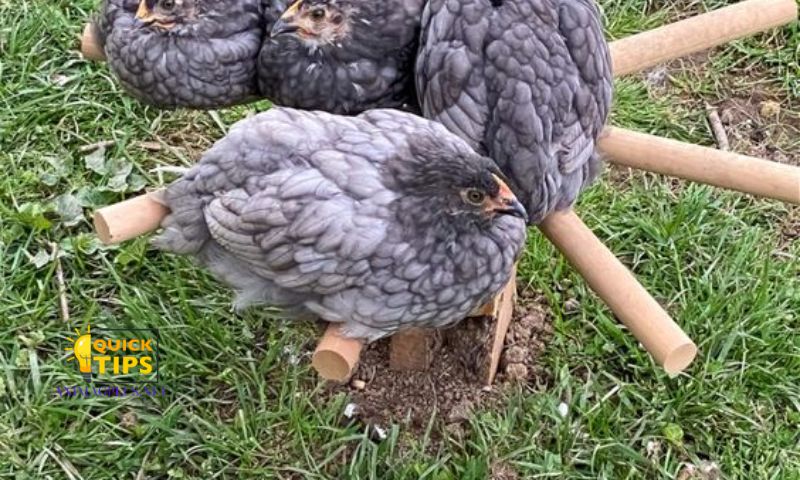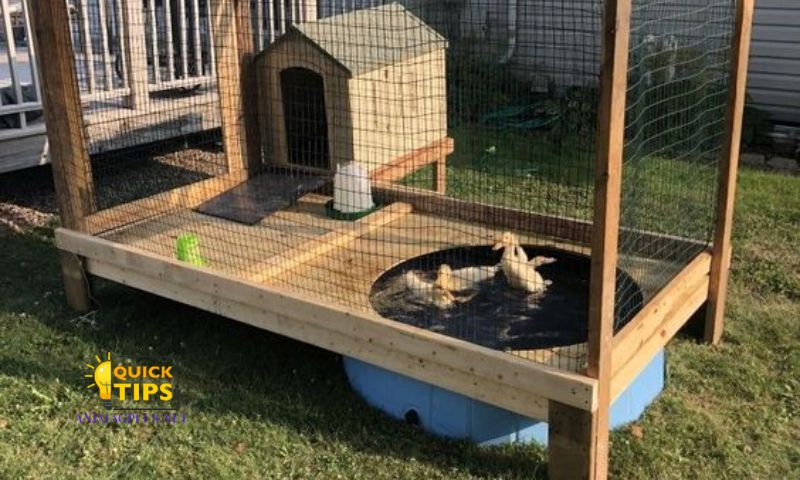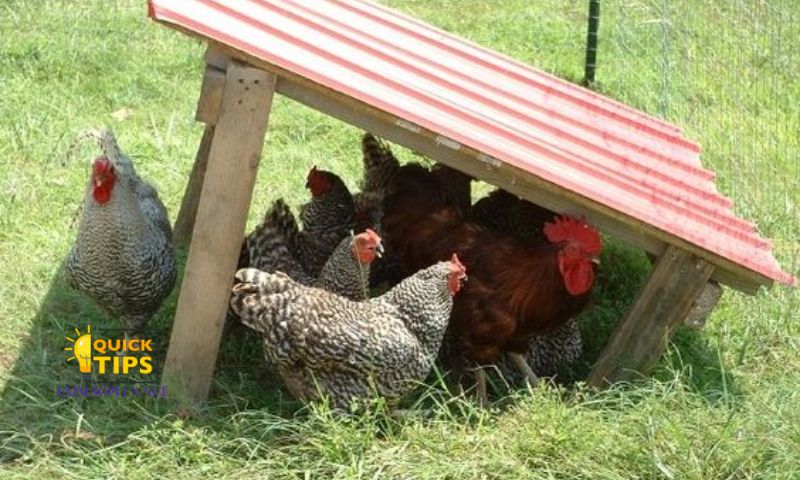Raising chickens has long been a staple in agriculture, providing a sustainable source of meat and eggs for countless households and farms worldwide. However, in today’s fast-paced agricultural landscape, efficiency and productivity are key. In this comprehensive guide, we’ll delve into the intricacies of accelerating chicken growth, offering invaluable Tips for Raising Chickens to Grow Quickly and insights for farmers looking to optimize their poultry production. From genetics and nutrition to housing and health management, Animagplus.net will explore the various factors that influence chicken growth and provide actionable strategies for achieving faster, healthier growth rates.
Factors Affecting Chicken Growth

Genetics
- Selecting the right breed of chickens is the first step towards ensuring rapid growth. Certain breeds are known for their superior growth rates and efficiency in converting feed into muscle mass. Breeds such as Cornish Cross and Plymouth Rock are popular choices among farmers seeking fast-growing chickens.
- When selecting chicks for your flock, prioritize traits such as growth rate, feed efficiency, and disease resistance. By choosing breeds with favorable genetic characteristics, you can set the stage for accelerated growth and improved overall performance.
Nutrition
- Proper nutrition is paramount to the growth and development of chickens. A well-balanced diet that meets the nutritional requirements of growing birds is essential for maximizing growth rates.
- Provide chickens with a high-quality feed that is specifically formulated for rapid growth. Look for feeds that are rich in protein and essential nutrients, such as amino acids, vitamins, and minerals.
- Supplementing the diet with additives such as probiotics and growth promoters can also promote faster growth and improve feed efficiency. However, it’s essential to consult with a poultry nutritionist or veterinarian to ensure the safe and effective use of additives.
Housing and Environment
- Creating a conducive environment for chickens is crucial for promoting rapid growth. Ensure that the housing facilities are spacious, well-ventilated, and free from drafts and moisture.
- Maintain optimal temperature and humidity levels within the chicken coop, especially during the critical growth stages. Extreme temperatures can stress the birds and hinder their growth potential.
- Provide adequate bedding material and nesting areas to ensure the comfort and well-being of the chickens. A clean and hygienic environment is essential for preventing diseases and promoting healthy growth.
Health Management:
- Implementing a proactive health management program is essential for preventing diseases and maximizing growth rates. Regular vaccination, deworming, and parasite control are critical components of a comprehensive health plan.
- Monitor the health and behavior of the chickens closely and promptly address any signs of illness or distress. Early intervention can prevent the spread of disease and minimize the impact on growth performance.
- Practice good biosecurity measures to prevent the introduction and spread of diseases on the farm. Limiting the exposure of chickens to pathogens and implementing strict hygiene protocols can help safeguard their health and well-being.
Tips for Raising Chickens to Grow Quickly

Selecting Fast-Growing Breeds
- Choose breeds known for their rapid growth and efficient feed conversion. Cornish Cross, Plymouth Rock, and White Leghorn are popular choices among farmers seeking fast-growing chickens.
- Consider the specific requirements and preferences of your target market when selecting breeds for your flock. Some breeds may be better suited for meat production, while others excel in egg production.
Providing High-Quality Feed
- Invest in a high-quality feed that is specifically formulated for rapid growth. Look for feeds that are rich in protein, vitamins, and minerals, and free from contaminants and toxins.
- Monitor the feed consumption and growth performance of the chickens regularly and adjust the feeding program as needed. Providing access to fresh, clean water is also essential for maximizing growth rates.
Ensuring Proper Housing Conditions
- Provide spacious and well-ventilated housing facilities that protect chickens from extreme temperatures and environmental stressors.
- Maintain proper sanitation and hygiene within the chicken coop to minimize the risk of disease and promote healthy growth. Regularly clean and disinfect the housing facilities and remove any accumulated waste or debris.
Implementing Effective Health Care Practices
- Develop a comprehensive health management program that includes vaccination, deworming, and parasite control.
- Monitor the health of the chickens closely and promptly address any signs of illness or distress. Seek the guidance of a veterinarian or poultry health specialist to develop an effective healthcare plan for your flock.
Best Practices for Chicken Care

Monitoring Growth Progress
- Keep detailed records of the growth performance of individual chickens, including weight gain and feed conversion ratios.
- Monitor the overall health and well-being of the flock and intervene promptly if any issues arise. Regularly assess the effectiveness of your management practices and adjust them as needed to optimize growth rates.
Regular Cleaning and Maintenance
- Maintain a clean and hygienic environment within the chicken coop by regularly cleaning and disinfecting the housing facilities.
- Remove any accumulated waste or debris from the coop and replace bedding material as needed. Proper sanitation is essential for preventing the spread of disease and promoting healthy growth.
Preventing Diseases and Parasites
- Implement strict biosecurity measures to prevent the introduction and spread of diseases on the farm. Limit the movement of people, equipment, and animals onto the premises and practice proper sanitation protocols.
- Monitor the flock for signs of disease and promptly isolate and treat any affected birds. Implement a regular deworming and parasite control program to prevent infestations and maintain optimal health.
Conclusion
Raising chickens to grow quickly requires careful attention to various factors, including genetics, nutrition, housing, and health management. By implementing the tips and strategies outlined in this guide, farmers can optimize the growth and performance of their flock and maximize their profitability. From selecting the right breeds to providing optimal care and management, mastering the art of chicken growth is essential for success in poultry farming. By prioritizing the health and well-being of their flock, farmers can ensure a steady supply of high-quality meat and eggs while contributing to the sustainability of the agricultural industry.

